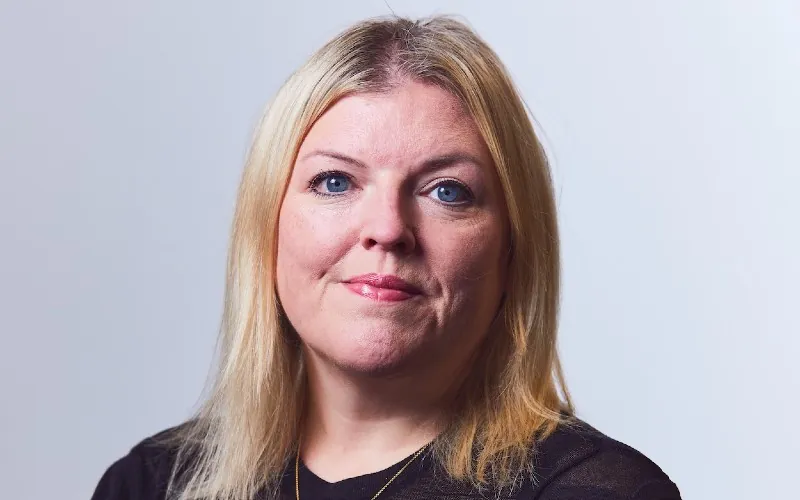The Chancellor has promised record spending on science and technology in her Spending Review.
Rachel Reeves’s speech to the House of Commons included a pledge to increase research and development funding to £22bn a year by 2029, the end of the spending period.
Reeves said she wants Britain’s high-tech industries to continue to lead the world in the years to come.
She also promised to back “home-grown AI with the potential to solve diverse and daunting challenges” with a £2bn investment, while £1.2bn a year by the end of the spending review will go to support more than a million young people into training and apprenticeships.
The financial capacity of the British Business Bank will be increased to £25.6bn, enabling a significant two-thirds rise in investments to around £2.5bn each year.
The last spending review – which sets out budgets for government departments for the next three years, as well as state infrastructure investment for the next four years – took place during COVID-19, with the one before that delivered in 2015.
The big news was that an extra £29bn a year will be spent on the NHS – a rise of 3% a year after inflation – with the NHS technology budget rising by almost 50% alongside a £10bn commitment to bring the “analogue health system into the digital age”.
AI summit takes place at House of Lords during London Tech Week
There will be £15bn for new rail, tram and bus networks across the West Midlands and the North, with a new rail line between Liverpool and Manchester and investments in buses, train stations and metro lines in places such as Rochdale, Merseyside, Birmingham and West Yorkshire; and an extension of the £3 bus fare cap in England to 2027.
In London, there will be a “four-year settlement” for Transport for London and a “fourfold increase” in local transport grants by the end of this parliament.
Other key announcements included a boost in defence spending from 2.3% of gross domestic product (GDP) to 2.6% by 2027, paid for by cuts to foreign aid; £39bn for social and affordable housing; and an end to asylum hotels.
The day-to-day budgets of the Home Office and Foreign Office will be cut by 1.7% and 6.9% respectively.
Total departmental spending will grow by 2.3% over inflation per year, which the Chancellor said was possible because of “decisions I took in the Autumn to raise taxes, and changes to the fiscal rules”.
Tory Shadow Chancellor Mel Stride said the approach was “spend now, tax later”, while the increase was also attacked by Reform.
What did the tech sector and wider business support landscape make of the Chancellor’s announcement?

British Business Bank
Michael Moore, chief executive of the British Private Equity and Venture Capital Association: “Today’s spending review provided welcome support for the British Business Bank. As we have long argued, if we are to raise investment in our fast growing businesses the BBB needs additional scale and a broader remit to help build the UK’s growth equity and venture capital eco-system. We are delighted the Chancellor has backed that call.”

Louise Chapman (above), investment director and NPIF II fund principal at Praetura Ventures: “The government’s commitment to dedicate a £410m Local Innovation Partnerships Fund for regional authorities is incredibly encouraging for founders and investors in the North of England who’ve spent years building and backing innovative businesses. These businesses are cementing the positions of regional cities on the world stage, particularly in fields such as AI, cybersecurity and healthcare. Expanding the capacity of the British Business Bank will also help accelerate this growth. We’ve seen first-hand the impact that regionally-focused funding can have.”
Andreas Adamides, CEO of Helm: “The two-thirds increase in British Business Bank funding is the strongest signal of genuine commitment to Britain’s wealth creators that we’ve seen in quite some time. This major expansion comes at a critical moment when scaling businesses need access to growth capital more than ever. If delivered effectively, this could be the catalyst that unlocks the potential of thousands of medium-sized businesses ready to drive Britain’s economic recovery. Right now, businesses can’t afford to hire and unemployment has hit a four-year high — but back them with proper growth capital, and watch them turn the tide.”
Alex Fenton, partner at FBX Capital: “Today’s Spending Review is finally a sign that Rachel Reeves’ is committed to supporting SMEs. Extending the Growth Guarantee Scheme whilst increasing the £2m cap shows this government is starting to understand that growing businesses need both adequate funding and time to deliver returns. As with anything, the proof will be in the pudding and the execution of these funding mechanisms will be crucial.”
R&D and AI
James Clark, data protection, AI and digital regulation partner at law firm Spencer West LLP: “This puts some firepower behind the January 2025 Government AI Action Plan, which set out an ambitious vision for the UK’s future as a global leader in artificial intelligence. It is very much about a sovereign, UK-first approach to AI and shows that this country is in something of a global arms race with other nations to ‘own’ key tracts of the AI economy.”
Ian Merricks, founder and proposition lead at VenturePath: “I am pleased to see these investments into R&D and AI – although how far £2bn goes remains a question – and to hear the focus on scaleups and the tone, as Chancellor rightly refers to entrepreneurs as wealth creators. Almost repairs the PM’s comments about entrepreneurs not being seen as ‘working people’.”

Katie Gallagher (above), MD of Manchester Digital and chair of the UK Tech Cluster Group: “The Manchester tech industry welcomes the news that the Government has committed £86bn into science and technology R&D, including up to £500m for regional authorities to target investment locally and £2bn for the AI Action Plan. Greater Manchester will receive awards of least £30m, as well as a £4.8m partnership between Manchester and Cambridge for business investment.”
David Harris, CEO and founder, Cambridge Healthcare Innovations: “The £22.5bn investment into innovation and research will elevate the UK’s global status in clinical trials and R&D. There are many treatment areas that haven’t seen equal levels of innovation to date. We now have a unique opportunity to change this, and bringing together the charity, public and private sectors in this initiative can be a turning point for greater levels of domestic innovation.”
NHS
Flann Horgan, head of healthcare sector at NTT DATA UK & Ireland: “You can’t build a digital NHS on analogue infrastructure. The government knows this and understands it will only be able to drive long-term efficiency in the NHS through investments in technology to modernise healthcare. The 10-year plan for the NHS sets out a clear direction for this: move from analogue to digital, modernise infrastructure, and harness technology to deliver better care at lower cost. To get a return on the investment announced today, the government is looking to make digital the default across the NHS and not the exception.”
Ram Rajaraman, healthcare & life sciences industry lead at Quantexa: “For the government to succeed in cutting waiting lists it should ringfence some of this £29bn investment to deliver on its pledge to build a ‘single patient record’. Accurately linking patient data means staff can reduce the significant time they spend chasing records, repeating tasks or re-collecting patient history… the NHS can then implement a full 360-degree view on which to build AI solutions to track population health, identify service gaps and allocate resources more effectively.”

Tom Whicher (above), CEO and co-founder at DrDoctor: “This is a welcome step towards improving the NHS for the long haul. Finally, a government is taking a more thoughtful approach, focusing on giving the NHS the resources it needs for real, lasting change. The recent upgrades to the NHS app show that digital tools have the potential to make a big difference by giving patients more control and streamlining the way we access care… but, for the government to effectively change the public’s relationship with the NHS, it’s critical that some of this investment is allocated to improving interoperability within the system: now it’s about ensuring that all platforms managing patient data speak to core functions – like the NHS App – for scaled, consistent access to care across the country, improving both patient outcomes and clinician efficiency.”

